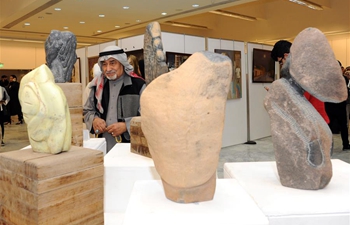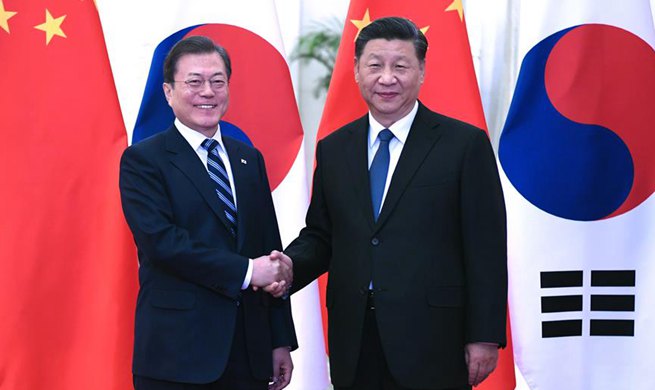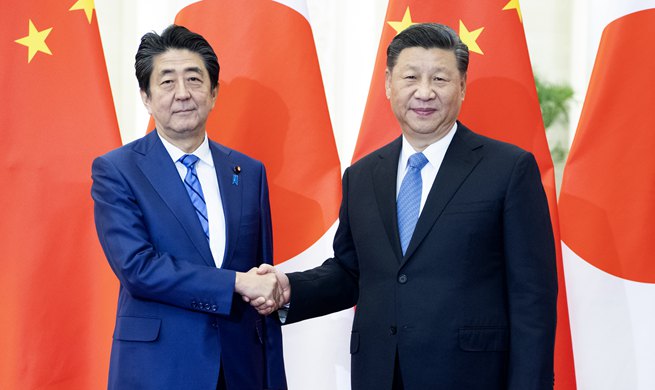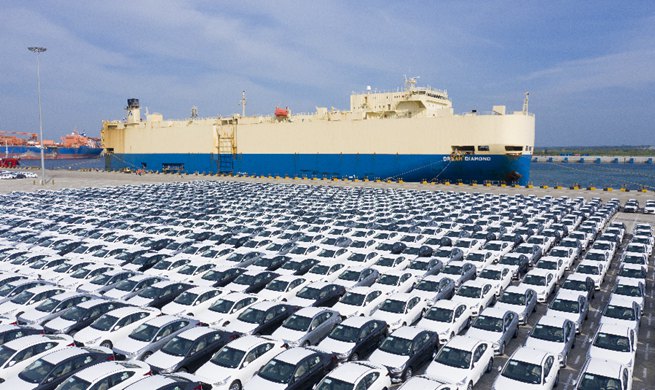by Xinhua writers Zhang Yunlong and Zhang Xuan
BEIJING, Dec. 25 (Xinhua) -- Chinese-produced films have amazed audiences with increased maturity in terms of storytelling this year and continued to smash box office records in one of the world's biggest movie markets.
They helped spur the annual total box office revenue of all films screened in China to reach a record high of 62.9 billion yuan (9 billion U.S. dollars) as of Wednesday morning, 3.6 percent higher than that for the full year of 2018.
BOX OFFICE
Domestic films accounted for eight out of the 10 highest-grossing movies this year, with "Ne Zha," an animated fantasy adventure featuring the Chinese mythological character of the same name, topping the chart with nearly 5 billion yuan, according to the China Movie Data Information Network.
"The Wandering Earth," a film depiction of a Chinese science fiction novel by Hugo Award-winning author Liu Cixin, came second on the chart with 4.68 billion yuan, followed immediately by Disney and Marvel's "Avengers: Endgame" with around 4.25 billion yuan.
Two patriotic films that premiered around the National Day -- "My People, My Country," a film recalling historical moments over the past seven decades; and "The Captain," a cinematic portrayal of the real-life miraculous emergency landing of a Sichuan Airlines plane in 2018 -- both made it to the top 10 list, garnering fourth and fifth places. The U.S. film "Fast and Furious Presents: Hobbs and Shaw" came 10th.
"The development of Chinese films has entered a transition period from pursuing film quantity to focusing on quality, with their overall quality improving significantly," Yin Hong, vice chairman of the China Film Association, told Xinhua while commenting on the performance of Chinese films in 2019.
STORYTELLING
Blockbuster domestic films have combined excellence in the embodiment of values, artistic quality and market competitiveness, which is well demonstrated by the films screened around the National Day and the Spring Festival, Yin said.
By putting the spotlight on ordinary people, "My People, My Country," the National Day holiday box office champion, adopts a form of storytelling completely different from previous films of the same genre.
Depicting legendary moments from the perspectives of the ordinary makes "My People, My Country" a patriotic film that resonates with viewers, Li Qian, a Beijing-based screenwriter, told Xinhua.
It stars Huang Bo as an engineer who manages to make an electric flagpole for the founding ceremony of the People's Republic of China on Oct. 1, 1949, Ge You as a Beijing taxi driver who gets a ticket to the opening ceremony of the 2008 Beijing Olympic Games but offers it to a boy who lost his father in a deadly earthquake that year, and Zhang Yi as a researcher who contributes to China's nuclear science research.
"Either based on real-life events or inspired by historical moments," this year's blockbuster patriotic films "are works that are in step with the pulse of the times," Li said.
The China Film Archive commended the films for broadening the genre and lifting the popularity of patriotic films.
The overall audience satisfaction with Chinese films screened during the National Day holiday reached 88.6 points, the highest ever recorded by the survey, which has so far covered more than 30 seasonal and holiday screening periods, the archive said.
DIVERSIFICATION
This year saw increased diversification in terms of cinematic aesthetics and artistic content represented by Chinese films, Yin told Xinhua.
The success of "The Wandering Earth," widely hailed as the first Chinese sci-fi blockbuster; and "Ne Zha," a milestone animation in rendering Chinese mythological figures, showed the wider scope of Chinese film genres.
At the same time, it seems to have lifted Chinese moviegoers' hopes of seeing more local works, whether sci-fi fiction or ancient fantasy novels, turned into indigenous Chinese films.
Screen adaptations from Chinese sci-fi novels used to be scarce, and popular sci-fi titles in China's multi-billion-dollar movie market were mostly Hollywood imports, but the industry was given strong impetus by the huge success of "The Wandering Earth."
In a related development, an animated adaptation of Liu Cixin's sci-fi trilogy "The Three-Body Problem" was inaugurated earlier this year as a project by Chinese online video sharing platform Bilibili.
"Ne Zha" won the highest score of 2019 for a Chinese film on review platform Douban, 8.5 out of 10 points, based on more than 1.15 million reviews.
Hailing the movie, which was inspired by the Ming Dynasty (1368-1644) novel "Fengshen Yanyi," or "The Investiture of the Gods," as a signal for the rise of Chinese cartoons, Douban expected a bright future for Chinese animated films.
Inspired by the same book, "Legend of Deification," a new animated film about a genius strategist produced by the same companies behind "Ne Zha," is set to hit Chinese theaters on Jan. 25, 2020, the Chinese Lunar New Year.
Chinese animated films have become more mature in theme selection and film production in recent years and many of them combined audience appeal with elements from traditional Chinese culture, said Sun Jiashan, a scholar with the Chinese National Academy of Arts.
Moreover, 2019 was also marked by Chinese filmmakers' innovations in terms of making art house films, including "Send Me to the Clouds," according to Yin, with the China Film Association.
"Movies have always been a business about the future and winning the hearts of audiences," said Wang Zizhi, founder of B&W Culture Media Co., Ltd., a Beijing-based movie promotion firm.
A film's success hinges on a solid screenplay and quality cinematic depiction, plus strong distribution and promotion support, Wang said.
Looking to the future, Yin said continuous efforts in protecting the innovation impetus and enthusiasm of Chinese filmmakers and creating a good environment for film creation are important for the development of domestic films.

















